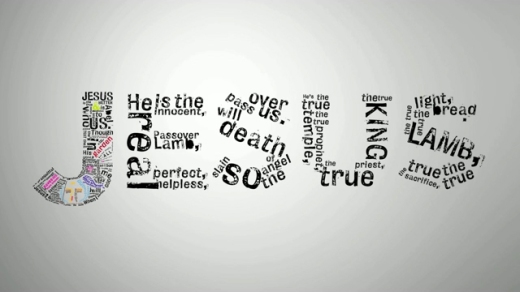
Yesterday I mentioned that Kari and I will be in London for a brief time, leaving in about a month. We’ve been invited to come speak at the annual Single-Minded Conference, intended for singles in the United Kingdom. (Some of the great people we will meet may be reading this here. Thank you for reading!) We love those in the college and career stage, and recognize the challenges of following Christ faithfully while single.
Many who are single tend to think of themselves as simply ‘not yet married,’ though others plan to remain single in the future. Either way, there’s no need to think of ourselves ultimately as defined by these categories, as if that is our ‘status’ in life. Yes, we call it that on forms — what is your marital status? — but there is so much more, as we know. Our ‘status’ may describe us for a moment, like when updating one’s Facebook status, but our true identity is deeper than a status update.
The popular culture of the world feeds us messages along these lines: you need to be in a relationship. (With someone hot.) And you need to be hooking up with that person, or someone else, because love won’t just find us. Go get yours; be on the prowl. The advertising that comes our way underscores this point: you’re empty and need this (___________) to fulfill you. So drink this beer and magically all these tan, fit people with perfect white teeth will be in your life partying it up with you. And you’ll be having insane amounts of fun! Buy this phone and you’ll be so hip that others of the opposite sex will offer you much more than their mobile number. We compare their highlights (airbrushed and glamorized) with our typical day and realize there is a huge gap. Let’s mind that gap and go have an awesome life — or so we’re told.
The hidden message: unless you’re in a relationship, you’re nothing. So we must do everything we can to erase this deficiency and become something and somebody, right? So we try to make ourselves as attractive as possible, dressing to be noticed, buying things to impress people so we can be in relationships that make us matter as people. We give up our bodies, because, after all, sex is just physical, right?
The church world tends to follow the same attitude, but with a so-called ‘holy’ twist — if you’re not married, you’re missing out. The church thinks of those who are married and those who just haven’t quite made it to marriage. Until then, you’re nothing. And you shouldn’t be having sex.
Not true.
Well, it is true that we shouldn’t be having sex before marriage. But why? (More on that in a future post.) But let’s get more focused on this be-married-or-in-a-relationship idea.
I love being married, and am grateful God brought Kari and I together. As amazing as she is, she’s not my savior. She fulfills me in a way God designed, but she cannot fulfill me ultimately. Without Kari I would still be a man created in God’s image. Without Christ I would be nothing. So I guess in one sense we can honest that unless we’re in a relationship — in communion with Christ — we are in fact nothing and nowhere in life.
For a weekend in late June we look forward to joining the faithful voices and godly mentors who are pouring into the lives of singles. As Matt Kottman, pastor in Leatherhead and organizer of the conference wrote me:
“Many singles are trying to find their satisfaction in their status (whether as singles staying single, or as singles desperate for marriage) rather than their status and identity in Christ and his gospel. Our prayer is that this conference would apply the gospel, giving these singles a singleness of heart.”
I can imagine that in Europe, and specifically in the UK, the men are just like us in the States — having little understanding of what it means to be a man in the biblical sense. We shirk responsibility and sacrifice, wanting to keep our ‘options’ open. We confuse ‘fun’ with being entertained, and have forgotten all the fun we can have when we live courageous and sacrificially with God. Because there are few godly examples to follow, we can get a warped view of what it means to be a man. Same for the ladies, who are told that their physical attractiveness is what defines them. They’ve noticed that good and godly men are so hard to find that they may not even exist — so how about you just settle for whoever likes you? Truth is, life is meant to have so much more meaning, beauty, intimacy, adventure, purpose, and joy than that!
In traveling to London and the UK, we are grateful for the support of our local church, with time given to go invest oversees, and the partnerships we have with missionaries there. In future posts I will share more about who we will be visiting, a bit about why I’ve always wanted to visit the UK, and other adventures we plan to have while there.
To all those we will meet: thank you for sharing your story with us.








 Surely, the benefits of participation [in social media & networks] are well-documented, but there are costs, too. While information is being channeled through these social networks, the fact remains the same illusions created by television have mutated into a stronger strain within social media. While more interesting information gets to us faster, the downside is that the new channels—and, we are all the channels—sometimes unknowingly create “little white illusions” that, over time, compound into something that may or may not reflect real life.
Surely, the benefits of participation [in social media & networks] are well-documented, but there are costs, too. While information is being channeled through these social networks, the fact remains the same illusions created by television have mutated into a stronger strain within social media. While more interesting information gets to us faster, the downside is that the new channels—and, we are all the channels—sometimes unknowingly create “little white illusions” that, over time, compound into something that may or may not reflect real life.![ASK [Almost] ANYTHING.](https://i0.wp.com/detheos.us/wp-content/uploads/2011/05/ask_almost_anything_320.png?w=240) Students ask awesome questions. Many times curiosity drives their exploration of faith and truth, and we want to reward their wonderings with some godly wisdom and timely truth. A few times a year we do this in our ASK [Almost] ANYTHING sessions with the
Students ask awesome questions. Many times curiosity drives their exploration of faith and truth, and we want to reward their wonderings with some godly wisdom and timely truth. A few times a year we do this in our ASK [Almost] ANYTHING sessions with the